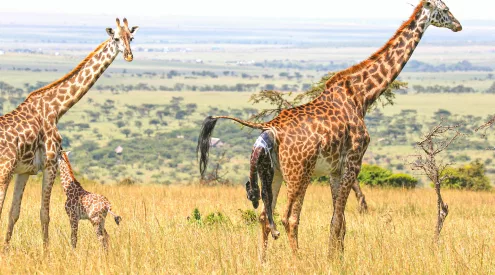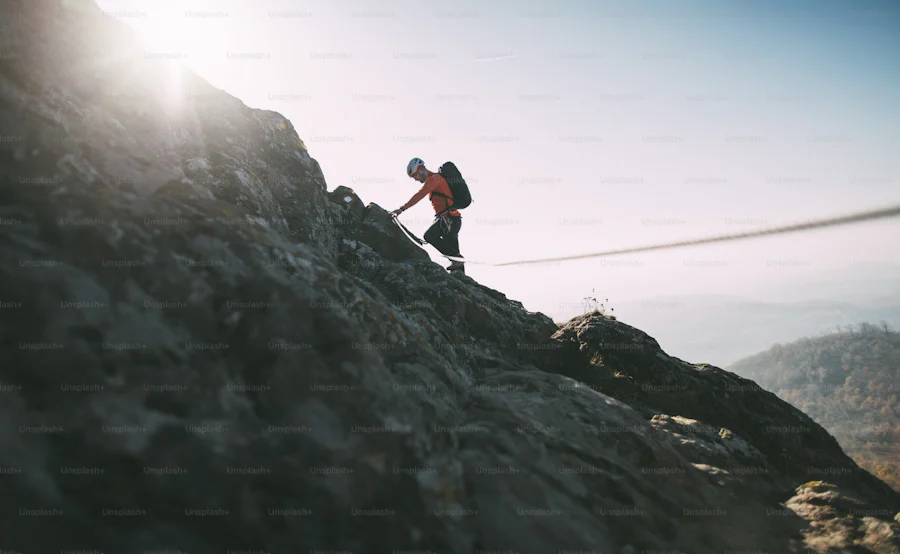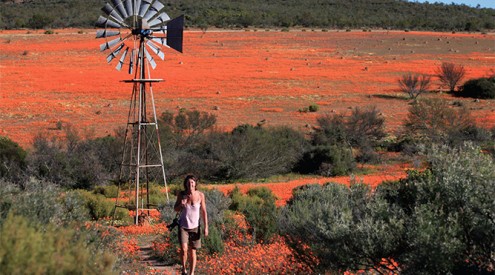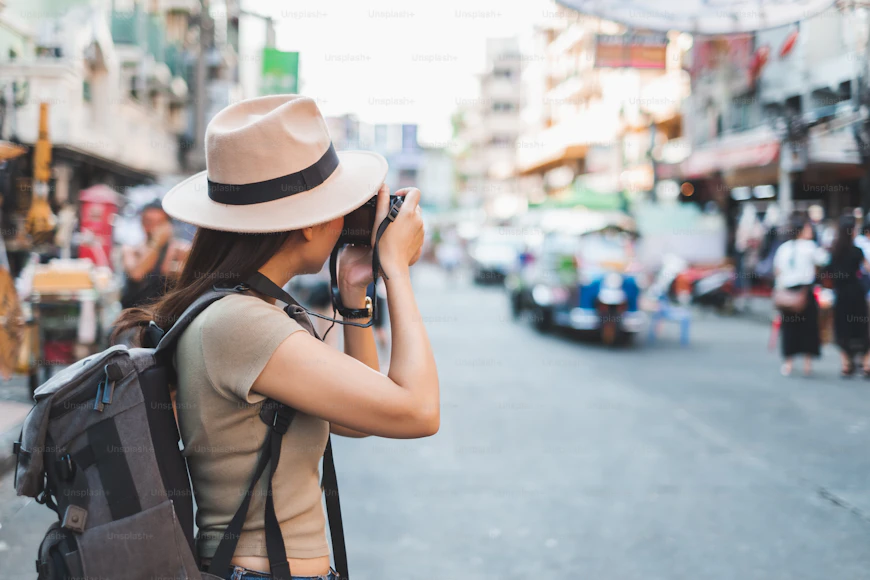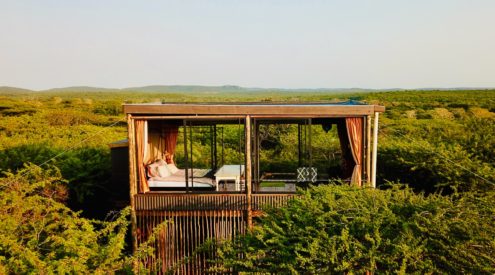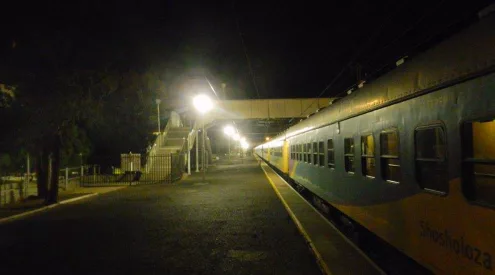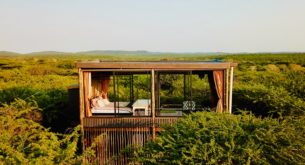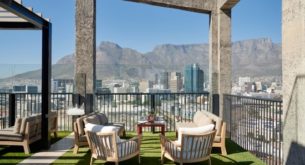East Africa has always conjured up vivid images in my mind – of haunting Maasai and ethereal plains studded with umbrella thorns; the misty, forested crest of the Ngorongoro crater, and a turquoise sea spiked with the ripe and bending sails of Arab dhows. I visited the region as part of a one month trip, cut short by a sudden bout of malaria that has left me with blacked-out memories of Dar es Salaam. Nevertheless, I got to see all of this, and experienced a kind of psychological whiplash in the process. Bear with me and my memories – they are already starting to feel like the favourite, dog-eared chapter of an evocative book”¦
A flight from London to the soaring heat of Dar es Salaam. Of course I had expected a contrast. But from the first step out into the slack, blood-clotting closeness of East Africa at midday, the difference cloaks you completely. It leaves the visitor delirious, eager, and feeling entirely out of place. This is the first thing I learned in Tanzania: do not expect to fit in. Do not expect to slot smoothly into the mass of people, or to feel at ease with the heat, the hurried stamp of immigration cards, the charismatic chorus of Swahili. Above all, do not expect to feel like a local the minute you clamber into a crowded bus or hail a rickety taxi. But hold on, I am leaping ahead.
Before the 13-hour flight and a three hour wait in the soulless interior of the Dubai International, I had already begun to dream of Dar es Salaam. A palm-lined harbour, I imagined, crumbling and derelict. A city unravelling at its edges, chaotic, dusty, but injected with African charm. The name that graces this extensive port-side city was given to it by an old Arab sultan of Zanzibar – the famed “˜Spice Island’ off the coast. In 1865 Majid bin Said came to the place, cast his eyes across the village of prosperous fishers, and proclaimed it a “˜Harbour of Peace’ – “˜Dar es Salaam’ in Arabic. The small town grew into the administrative and commercial centre of German East Africa under colonial rule, and today supports a population of almost 2,7 million people who work in the city’s gleaming high-rise centre, sell their wares along its contrasting gravelly streets, and roam the humid harbour in search of business.
I embarked on the trip with my boyfriend Andrew – an adventurous Scot from pioneering stock, who had agreed to join me months before. And so we began. An odd pair we were: a Scot and a South African who had just left behind the bright lights and cosy pubs of London. He had come, spurred on by his innate sense of adventure (an inspired traveller, with a passion for the edgier cities of Eastern Europe), and enticed too by the chance to be horizontal on a beach for part of the time and finish his book (it was Vanity Fair and he had been reading since February. Snore.) He had turned out to be a brilliant travel buddy during a recent trip to the Scottish Hebrides, and I figured that if we had survived getting lost in the heathery hills with only a track map and half a jar of crunchy peanut butter as companions, then the “˜third world’ was bound to be just as much fun. I had come to fulfil the first part of a long desired, long saved-for, foray into the continent. Looking back, I believe more strongly than before in the adage that “˜Africa gets into one’s blood’. But for very different reasons now.
Back to touch down at Dar’s airport – the Julius Nyere International. It strikes me how firmly our expectations of a place are formed by that first glance over the earth, from thousands of feet up in the air. I remember the scattered green patches of rural land, the human settlements like clusters of ants, the sudden uprising of a silvered city, and then (I took in my breath) the endless wash of sea. It looked sublime and beautiful from up there, viewed with the whoosh of politely cooled plane-air sounding in our ears; like a tiny toy town for us to play with and rearrange. The surprise always comes with touch down, and the realisation that the place you are in is an enormous, hard-to-negotiate jumble, far removed from the neat world viewed from above.
Passengers are greeted by an addictive wall of damp heat – the sort that creeps up your skin and into your hair – and air traffic controllers that order you across the concrete. Immigrations is hurried and congested: cards are filled out and presented to officials who clutch at English just more impressively than tourists stumble through Swahili. Saying “˜jambo!’ (hello) quickly became my new favourite East African ice-breaker. One waits patiently besides a caterpillar of a baggage strip, and suddenly, you’re out in the air. That’s the best thing about the airport: the space between four walls is so warm, so recycled, so conducive to sweaty half moons, that Arrivals is situated outside. It is as if whoever built the place was impatient to hustle visitors out into the airier East African outdoors.
But here comes the clincher, because the realisation dawns that you have arrived without a plan, and that you look exactly like you don’t want to – i.e. like a luminously white person sporting a two-metre high backpack that makes you feel like an obese tortoise, brandishing your Lonely Planet guide nervously at the locals. The worst bit is that you have the wide-eyed mark of the vulnerable tourist, because everything you see is new and fascinating, and slightly shocking. Like the volley of taxi drivers who spot you (not difficult; white people glow in East Africa), recognise your searching gaze and start calling “˜Rafiki, rafiki, (my friend, my friend). Just tell me where you want to go’ before you’ve even come to grips with where you are. Or the man who calls you over looking like he knows the answer to the question written across your face, and then shakes a begging tin at you. Or the guy who finally pushes through a gap in your defensive façade, takes you by the arm, and passes you onto someone else who herds you to a car, opens up the boot, shoves your bags in, and tells you loyally that he will take you wherever you want to go. And all the while you’re thinking whitely “˜Oh my god I read about this in the guide book.’
All one generally reads about African locals is the limited, patronising description that they are “˜such friendly people’. And mostly, they are, but it’s important to give Tanzanians credit too for being multi-dimensional, complex hosts who are wise to opportunity, and for having the right to want to make a buck off you. After all, you are an outsider holidaying in their crowded, undeveloped country: initially, you’ll represent a walking stack of US dollars. The gap between travellers and locals opens up the minute the visitor steps off a plane, and it smacks of money. It also never truly closes up. So it would be dishonest to gloss over the glaring differences, the unease, and the questioning conscience that activates itself the moment you become a tourist in a very poor country.
“¦Turns out the taxi driver was entirely honourable (observation #1: they always are), and he deposited us onto a soggy gravel side street beside “˜Riki Hotel’. This was two hours later, after a downpour and a sticky traffic jam between the airport and Dar’s outskirts. In the heat, I had become stuck to the fake leather interior, and having peeled myself off, found I’d left behind a large and sweaty bum-print pasted to the seat. Mmmm. (Observation #2: you don’t sweat in Tanzania; you pour.) We scuttled from the vaguely threatening outside into the building, with its low ceilings, dim lighting, and nostalgic brown 1970s wall-panelling. Riki’s, (as we had read from the guidebook in some English pub that felt roughly two light-years away) was comfortable and clean. Ours was a room with a tiny balcony jutting out above a line of trees where crows roosted and cawed. It gave us a broad view over the towering flat blocks of Dar es Salaam’s urban fringe, and as the low post-rain sun cast a glamorous yellow glow over haphazard architecture and lines of washing, it left me dreaming of what Cuba might be like.
The two of us quivered in the room for a while, talking in hushed voices, while consulting the guide book. The arrival had thrown us right in the mix. Dar’s outskirts are a dirty jumble of low unkempt buildings and gravelly sidewalks, which also serve as an emergency lane for the infamous “˜dalla-dallas’ (taxis) that get bored with traffic. Pedestrians and cyclists part wildly for these blaring demons, loaded with shiny-faced commuters, luggage swaying precariously on the roof. The traffic itself inches forward, punctuated occasionally by some poor highly-strung policeman waving frantically at four lanes of aggressive traffic. And all the way, in between the sweating lines of traffic, hawkers and beggars pepper the road. There are unseeing adults led by small children, and people with withered legs that drag themselves painfully along the tarmac between cars, holding up open hands at eye-level to beg for shillings. Darting around the cars, scores of entrepreneurial young men tilt cardboard trays at windows, advertising a medley of roasted cashew nuts, fizzy drinks, and mobile phones. They smack their lips at irate travellers – the Tanzanian tactic for drawing attention to goods for sale. In the lulls between moving traffic, the damp and polluted air is charged with the sound of their insistent kissing. It is a chaotic, heady introduction; a necessary preparation for the portside city which inches ever closer.
Back at Riki’s, the night was settling, and somewhere, an Imam’s singing voice swelled eerily from his mid-city tower. We read that Dar was a dangerous place at night, a city with a roaring drug trade, unfriendly to bold visitors strutting out with cameras and loud voices. Stay indoors after sundown, the book advised. But I sniffed the humid East coast air, and gazed longingly over the dusty streets; Andrew read enticing descriptions of Dar’s Indo-African cuisine. We tossed aside the book, threw together identity books, cash and cameras to take with us lest our room was robbed (observation #3: do be cautious in most budget Tanzanian institutions), clutched hands sweatily, and embraced the urban outdoors.
It was the first step headlong into a contradictory adventure.


